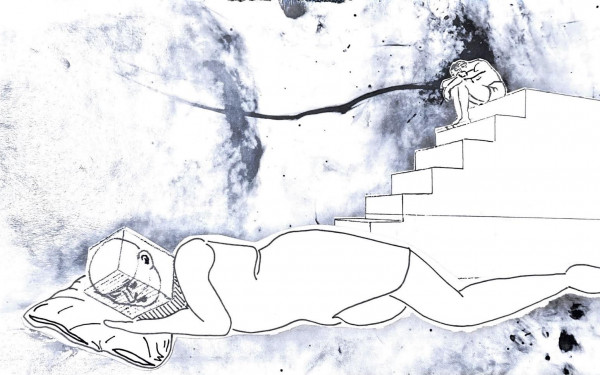Navigating mental health support at Concordia
Despite changes, some students report that issues remain
For political science student Konrad Johannesson, the process to access mental health support at Concordia University began around when he started his degree three years ago.
At the beginning, he found the process to get an intake appointment difficult, with the only open slots to access Counselling and Psychological Services being on Fridays at 9 a.m.
Johannesson said he had a lot of trouble getting a spot, with the Friday slots filling up almost immediately. He claims it took him a year and eight months to receive six sessions with a psychotherapist.
“There is a possibility of taking more during the summer, but that doesn't account for people who are only here during the eight months,” Johannesson said. “So, during the school year, you are very strictly limited to your six appointments.”
However, once he did get a spot, he had a positive relationship with the therapist he was paired with.
“My therapist during those six sessions was really good because he had very personal experiences that mirrored mine,” Johannesson said.
Dr. Elana Bloom is a psychologist and clinician who has been the director of Campus Wellness and Support Services at Concordia since July 2022. She says that the services are meant to support students in their university life.
Due, in part, to complications faced by students like Johannesson, Bloom worked to modify the onboarding process and implemented a change in November 2023.
The intake appointment process is now open every weekday at 9 a.m., and Bloom said it generally has 40 to 50 available spots per week.
According to Bloom, the wait times to see a counselor at Concordia are now roughly two to four weeks.
Second-year early childhood and elementary education student Sofia Leiva found the new intake process simple. She submitted an intake form in July 2024 and was given an intake appointment for August 2024.
She said earlier appointments were available, but she was out of town. However, the intake appointment was not what Leiva was expecting.
“It was honestly really frustrating to have to go into that meeting to tell someone exactly what I wrote on the form,” Leiva said.
In that same meeting, Leiva claimed the social worker told her that she would not be able to get help from Concordia’s services.
The alternatives offered to Leiva were outside of the university and were not free.
“I will say that it does feel very frustrating that they are looking for a very specific group of people that they can help,” Leiva added. “It just feels a little bit comical.”
Undergraduate students covered by the Concordia Student Union’s (CSU) Health and Dental Plan wishing to seek out private therapy are eligible for up to 80 per cent coverage per session, up to $750 per year.
According to the Ordre des psychologues du Québec, the average hourly cost for psychotherapy is between $120 and $180.
Bloom said she wants to remind students that the counseling services at the university are not meant to replace a private therapy clinic or long-term psychotherapy.
“It’s really important to bear in mind that not everybody needs to see a psychotherapist,” Bloom said. “There are so many other important, really good services that are going to help you.”
Leiva said that she believes more alternatives should be offered.
“If they're turning away so many people, they should provide an alternative,” Leiva said. “I don't think that it should be CSU, and I don't think that it should be the [Arts and Science Federation of Associations].”
Bloom also recommends that students make use of other Concordia services.
“We have a whole host of CU wellness programming that involves all types of workshops and activities, and experiences for students to be able to enhance their mental health and wellbeing beyond just going to see a counsellor,” Bloom said.
Leiva doesn’t believe these services are advertised correctly.
“Students don’t know about a lot of the services offered to them. That’s another issue in itself,” Leiva said.
Bloom said that she is constantly looking to improve the services offered.
“I'm open to meeting with students and talking with students to improve our services and processes,” Bloom said. “I encourage students to provide feedback.”





_900_642_90_600_375_90_s_c1.jpg)

_600_375_90_s_c1.jpg)